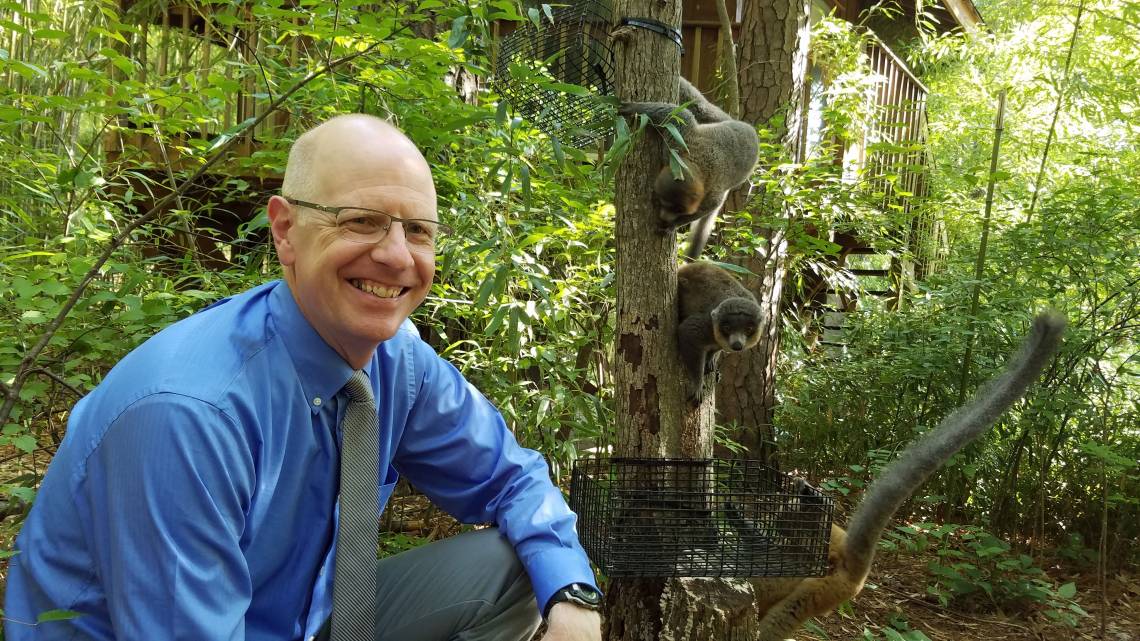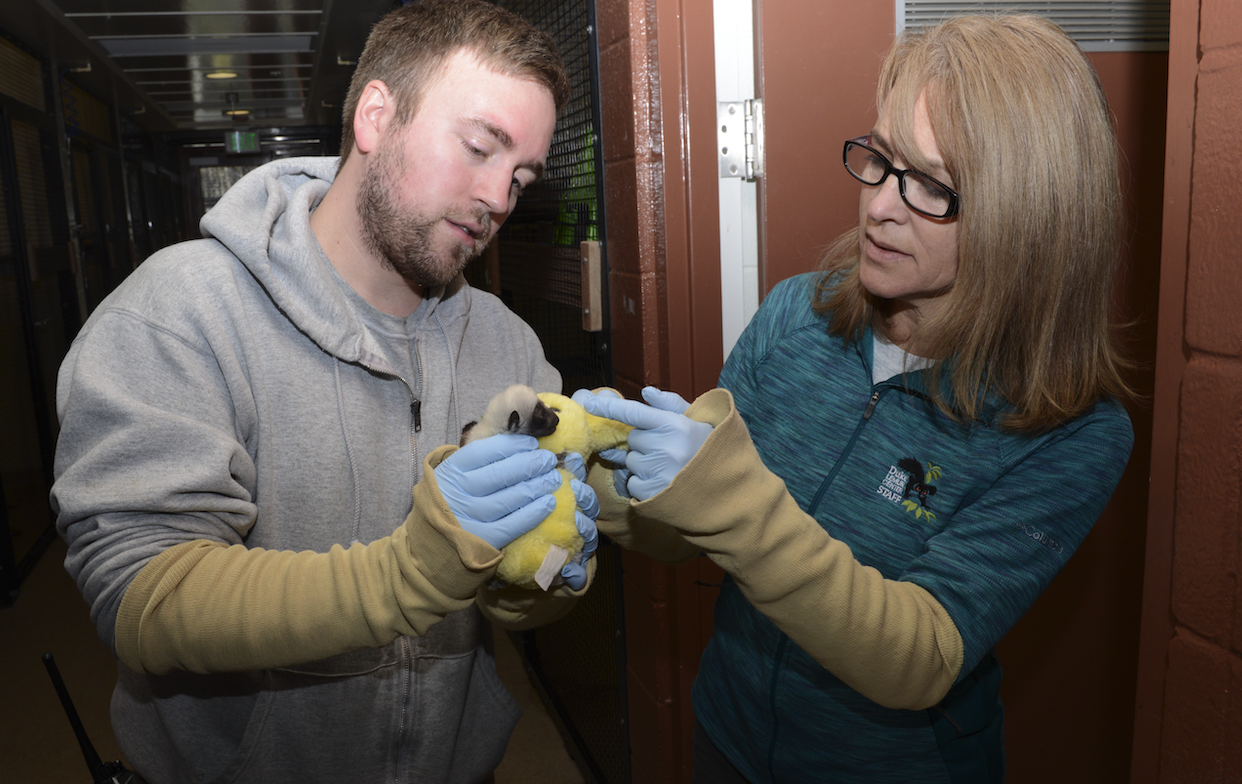
Greg Dye, Executive Director of the Duke Lemur Center.
From the Director: 2020 Impact Report
We recognized early in 2020 that we had the option of completely shutting down for the unforeseeable future or, more to our nature, to find new opportunities in our circumstances and identify novel ways to advance our mission. Thanks to our team’s innovative spirit and can-do attitude, we were able to introduce several new programs and lay the groundwork for future projects that will enhance our abilities to connect with a global audience. While the economic impact of the pandemic will be felt for years to come, much was accomplished in 2020 to ensure the continued health and safety of our irreplaceable colony of lemurs.
Financial Status
Thanks to sound and responsive leadership and innovative thinking, the DLC was able to continue fiscal soundness during a turbulent year that included an $800,000 loss of revenue during the 2020 calendar year alone, due to the required closures of tour programs and summer camps. The DLC team evaluated the situation and identified what “financial pauses” could be put in place while assuring that all mission needs were met. We didn’t accomplish this by ourselves: All of our stakeholders made this possible. Our mission and impact remained strong because of the amazing generosity of our donors, the implementation of several innovative fundraisers, the utilization of the Lemur Center’s “rainy day” reserves, and the reduction of expenses only if they had no effect on mission outcome. In addition, we are thrilled to share that we were able to identify resources to implement initiatives that will enhance our care of the lemurs and our competitiveness for future federal grants that will help support operating costs of the DLC going forward.
To learn more, please see our 2020 financial overview.
Leadership Changes

Britt Keith (left), shown here during a routine infant weighing and wellness exam, is the new Curator of the DLC colony.
We sadly said good bye to two pillars of the DLC family as they began well-earned retirements: Conservation Specialist Andrea Katz and Colony Curator and former DLC veterinarian Cathy Williams, D.V.M. These women successfully steered the Lemur Center through several critical periods over their 43- and 25-year careers, respectively, and helped guide the DLC to becoming the global scientific and conservation resource it is today. Our new Colony Curator is Britt Keith, who has been with the DLC for 13 years as its Assistant Curator. Kristin Clark is our new Assistant Curator, bringing more than 10 years of diverse colony management experience from the North Carolina Aquarium to this position. Together with Meg Hudson-Dye, Curator of Behavioral Management & Welfare, Kristin and Britt make up the DLC’s curatorial team to ensure that our standard of excellence in animal care, welfare, and management never waivers.
Commitment to Diversity
The DLC’s management team made a commitment to better engage with underrepresented minorities to expose these students to science-based careers. Specifically, the DLC will increase the diversity of its internship participants and workforce, in addition to providing no- or low-cost access to STEM-based educational programming to underserved schools and student groups in the Durham, NC area. The DLC’s Student Projects Coordinator, Erin Hecht, is leading this multi-departmental effort and has made significant progress thanks to the assistance of Duke’s Office for Institutional Equity.
We know that a limiting factor to participation by many students in the DLC’s internship program is often the need to earn money during the summer in order to return to school. To date, the DLC offers only an unpaid internship program; so in September 2020, the DLC submitted a grant proposal to the IMLS that would provide two years of funding to eight need-based students annually, to allow them to take advantage of our programs. We will also be enhancing our outreach programs with Historically Black Colleges and Universities, including North Carolina Central University and North Carolina A&T University, to encourage student participation from these schools. In order for the DLC to succeed in its mission, we must improve participation and engagement in all areas of our community.
Receipt of Federal Support
Recently the DLC was notified by the National Science Foundation (NSF) that its three-year support grant for the DLC’s Division of Fossil Primates was awarded. The funds will be used to cover a portion of the salaries of several key positions, and will provide funds to further our efforts to digitize this valuable collection so that it can be accessed by researchers and students from virtually anywhere in the world.
Expansion of Educational Outreach
As a result of becoming forcibly disconnected from our in-person onsite visitors, we have forged new and deeper connections with an international audience. In addition to developing a new suite of virtual programs, for the first time we offered activities that could be truly participated in by a global audience—including the Stay Away 5K (runners from all 50 states and 11 additional countries) and the virtual gala and video Me and You and Zoboomafoo—and developed international partnerships, including the 100 Lemurs campaign, to raise awareness of lemurs worldwide.

